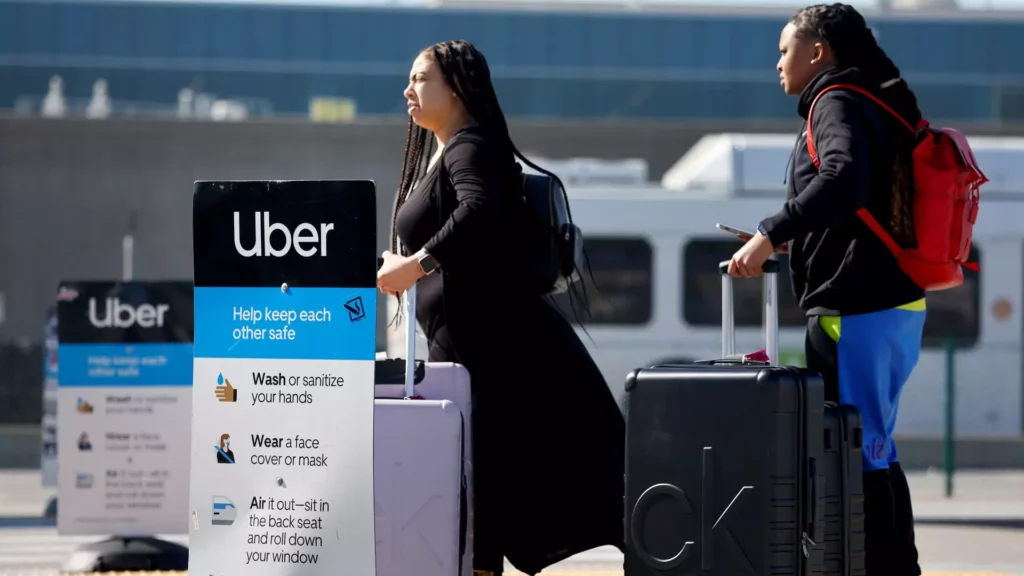In a strategic move that underscores the dynamic nature of loyalty programs in the airline industry, Delta Air Lines has announced a new affiliation with Uber, set to launch this spring. This shift from eight years of collaboration with Lyft marks a significant transition for Delta, highlighting both emerging trends in consumer behavior and the competitive landscape of transport services. As travel picks up pace, Delta is keen to enhance customer experience and streamline airport exchanges, leveraging Uber’s broad reach and robust platform.
Under the new collaboration, Delta SkyMiles members will have the opportunity to accumulate miles—which translate into tangible rewards—by using Uber services. The framework is enticing: one mile for every dollar spent on standard UberX rides to the airport, two miles for premium offerings like Uber Comfort and Uber Black, and an impressive three miles for Uber Reserve rides. Moreover, the Delta partnership extends to the Uber Eats platform, providing SkyMiles members one mile for each dollar spent on food delivery orders exceeding $40. This diversified earning potential not only incentivizes usage among existing SkyMiles members but also attracts a broader audience to both Delta and Uber.
Although Delta has not publicly disclosed the reasons for severing ties with Lyft, several factors may have influenced the decision. Delta’s established credit card partnership with American Express, which offers cardholders riding credits for Uber, adds a layer of financial synergy that could have tipped the scales in Uber’s favor. With estimates suggesting Delta expects $7 billion in revenue from the AmEx alliance in 2024, the need for compatible partnerships appears vital.
Lyft, while still popular, had operated on the fringes of the ride-hailing market compared to Uber, which boasts a staggering 161 million active users across its various services. As loyalty programs continue evolving to create more benefits for customers, Delta may have identified Uber as a more strategic partner aligned with its long-term goals.
The Competitive Landscape of Customer Loyalty Programs
Airlines increasingly understand the significance of loyalty programs, recognizing their potential to generate substantial revenue. Delta is not alone in pursuing innovative strategies to bolster its SkyMiles program. Other notable collaborations, with brands like Starbucks and Ticketmaster, illustrate how airlines are looking beyond traditional industry partners to enrich their offerings. Such alliances foster customer retention by enhancing the overall travel experience, allowing travelers to rack up points across diverse spending avenues.
Lyft, in response to its departure from Delta, remains committed to a wider strategy that includes partnerships with various other brands, such as Alaska Airlines and Hilton. The ability to drive mutual value through these collaborations will be critical for both Lyft’s growth and Delta’s continued push toward creating a more seamless customer journey.
Delta’s announcement at the CES tech show reinforces its commitment to innovation in the travel sector. Alongside the Uber partnership, Delta introduced plans to implement an AI-powered assistant within its app and improve its in-flight entertainment systems. These advancements signify a growing trend where technological integration is key to enhancing the travel experience.
As travel becomes more intertwined with digital solutions, both Delta and Uber are responding to consumer demands for convenience and efficiency. The partnership is indicative of a larger pattern in the industry where the focus is on creating cohesive travel ecosystems—one where loyalty points are not just confined to air travel, but rather extend to every aspect associated with it.
Delta Air Lines’ partnership with Uber is not just a shift in affiliations; it represents a broader adaptation to current market trends and changing consumer expectations. By facilitating miles accumulation through Uber, Delta effectively amplifies its loyalty strategy while simultaneously enhancing the passenger experience. As the airline and ride-hailing industries evolve, collaborations like these are poised to become essential building blocks, shaping the future of travel in a customer-centric manner. For travelers and frequent flyer program participants, the sky is certainly a little bit closer, thanks to creative synergies built in the world of travel.

